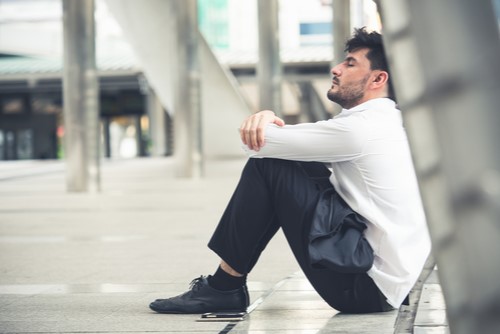
Effects of Alcohol on Men
December 1, 2017
Talking to Your Family About Treatment
December 5, 2017Depression is a mental health condition that can be moderate to severe. Symptoms of depression include decreased motivations, changes to appetite, sleep disturbances, suicidal thoughts and actions, tearfulness, and a general feeling of sadness. Depression varies in severity and can range from a seasonal depression or severe depression with self injurious behaviors.
Alcohol is often consumed to cope with the uncomfortable symptoms of depression. Depression can affect relationships with family, friends, and even yourself. Adding alcohol to the mix is a setup for serious complications. Alcohol, when abused, has depressant characteristics which will make a clinical depressive disorder more pronounced.
For some people, chronic alcohol abuse can cause depression. Substance abuse, in general, can make you more prone to depression and other mental health conditions. Addiction changes the way the brain functions. Addiction provides a temporary euphoria that can impair your body’s natural ability to experiences pleasure from natural things.
Using alcohol as a coping tool for depression can increase the side effects of both conditions. Alcohol increases impulsivity which is dangerous for people with depression. Consuming alcohol increases the risk of self-harm, risky sexual behavior, and makes you more vulnerable to assault and accidents.
Alcohol interferes with the way anti-depressants are supposed to work. Mixing alcohol and antidepressants can cause anxiety and panic. Drinking alcohol is counter productive to depression treatment for a variety of reasons including:
- Makes the medication ineffective
- Increases side effects
- Dangerous interactions with some antidepressants and alcohol
- Increased drowsiness
- Not taking medication as prescribed
- Negatively affects sleep cycles
Not everyone who drinks alcohol is an alcoholic. However, drinking more than once in awhile greatly increases the risks of complications when you are in treatment for depression. If you abuse alcohol, you are putting yourself in jeopardy of developing an alcohol dependency. Addiction and depression is a complex dual diagnosis, so if you don’t abuse alcohol try not to start.
Overall, alcohol mixed with energy drinks may seem to have benefits such as staying awake longer or offering a more enjoyable time. Unfortunately, alcohol and energy drinks just do not mix. Alcohol and energy drinks negatively impact your health, create lasting medical issues, and can even have fatal consequences.
If you have concerns about your drinking, reach out to an addiction specialist to discuss your thoughts. If you are worried about health problems stemming from mixing alcohol and energy drinks, please talk to a medical provider today.
Depression is a hard road to travel. Alcohol may seem comforting, but there is another way. Let The Kimberly Center help you. Call us now at 855-4-KCENTER, we can teach you about recovery. We are committed to putting you and your recovery first. At the Kimberly Center, you can be assured that you are in safe hands.




